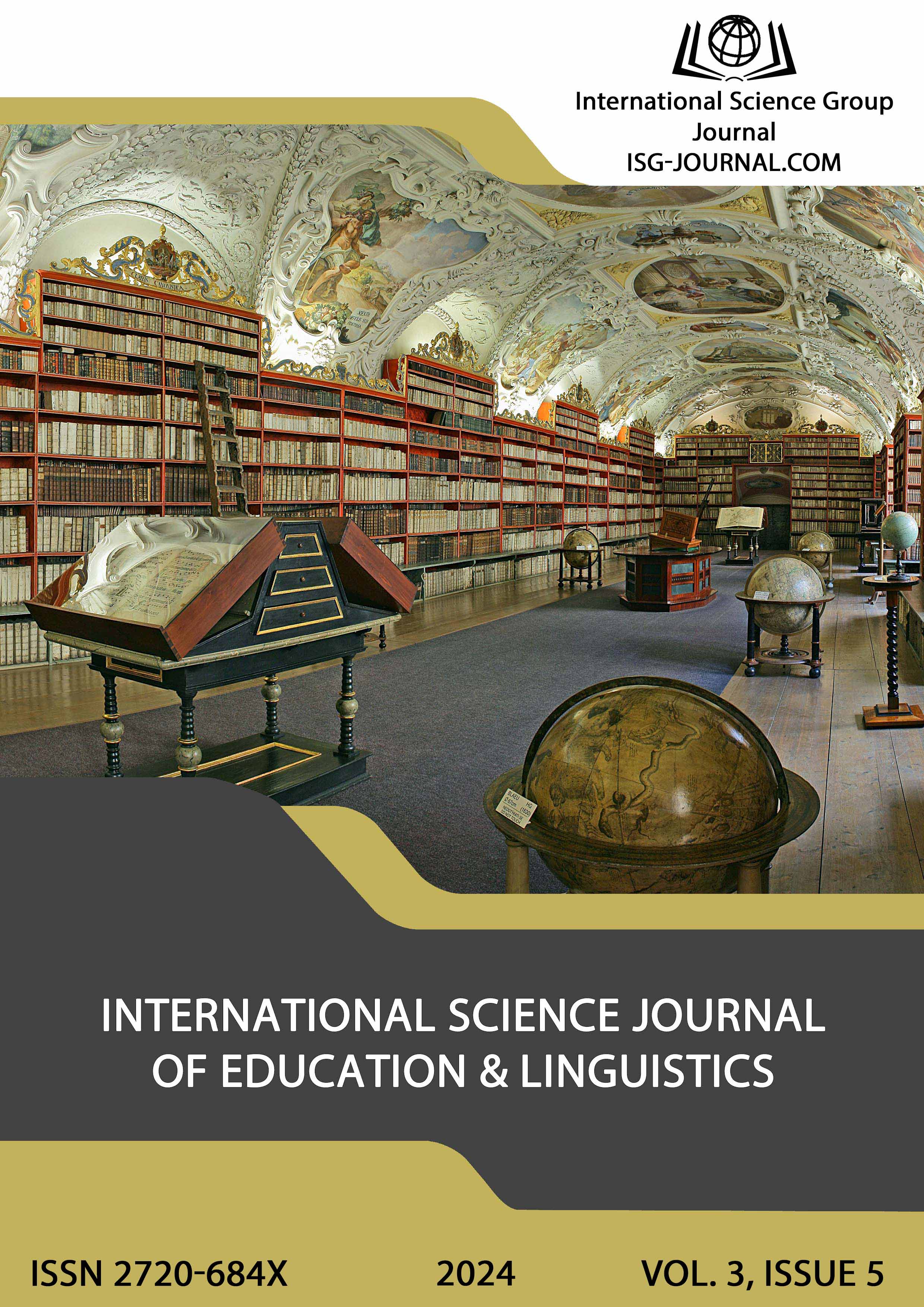Modern manifestations of a woman's character in the English-language proverbs
DOI:
https://doi.org/10.46299/j.isjel.20240305.05Keywords:
gender, woman, appearance, proverb, character traits, sex, stereotype, man, femininityAbstract
The article explores the modern manifestations of women's character in English proverbs. The paper considers the concept of ‘proverb’ and analyses in detail the terms ‘gender’ and ‘sex’. For a long time, the concepts of ‘gender’ and ‘sex’ have been used as synonyms. The reason for this is the foreign origin of the term ‘gender’ and the ambiguity of its translation into Ukrainian. Today, the term ‘gender’ is more commonly used in an independent capacity alongside the term ‘sex’. Sex reflects the differences between women and men mainly on physiological grounds, while gender reveals psychological and social role characteristics. Gender is an object of study in linguistics and helps to explore the reflection of women and men in language, as well as to analyze the speech behavior of the two sexes. The phenomenon of femininity has also been studied. From the point of view of the modern development of society and the intensification of the feminist movement, the article considers the issue of gender inequality within the framework of feminist linguistics and examines its impact on the formation of a vision of the female essence in society. The study of the gender aspects of language and communication remains one of the most underdeveloped areas of gender studies, which is why it is very relevant today. The phenomenon of femininity reflects a set of mental and behavioral features that are inherent in women and distinguish them from men. The article focuses on a detailed analysis of modern manifestations of a woman's character in English proverbs, which are due to a very sharp change in attitudes towards women in the early twentieth century, when the feminist movement was developing, especially in terms of gender equality. The feminine essence of a modern woman is more confident, and in a world of mixed gender roles, we can see certain changes in the emphasis of proverbs. In particular, there is an increase in the authority of women and their significant role in shaping men's confidence and success. It is important to note that some parts of conservative society strongly condemn such a free expression of women's will, which is also reflected in proverbs.References
Дубенко О. Ю. Англо–американські прислів’я та приказки. Вінниця, 2004. 416 с.
Пазяк М. Українські прислів’я та приказки: проблеми пареміології та пареміографії. Київ, 1984. 203 с.
Бессонова О. Л. Порівняльний опис гендерних концептів у структурі ціннісної картини світу в англійській та українських мовах. Вісн. СумДУ. 2002. №4. С. 14–15.
Tannen D. You Just Don’t Understand: Women and Men in Conversation. , 1991. 243 p.
Fausto-Sterling A. Myths of gender: biological theories about women and men. , 1992. 310 p.
Baron-Cohen S. The essential difference: men, women and the extreme male brain. , 2003. 263 p.
Мартинюк А. П. Конструювання гендеру в англомовному дискурсі. Харків, 2004. 292 с.
Семашко Т. Ф. Гендерна лінгвістика в системі сучасної мовознавчої науки. Вісник Маріупольського державного гуманітарного університету. 2010. С. 166–170.
Lakoff G. Women, fire and dangerous things: What categories reveal about the mind. Chicago, 1987. 750 p.
Wolfgang Mieder. A Dictionary of American Proverbs. United Kingdom, 1992. 953 p.
Downloads
Published
How to Cite
Issue
Section
License
Copyright (c) 2024 Svitlana Vorobiova

This work is licensed under a Creative Commons Attribution 4.0 International License.





